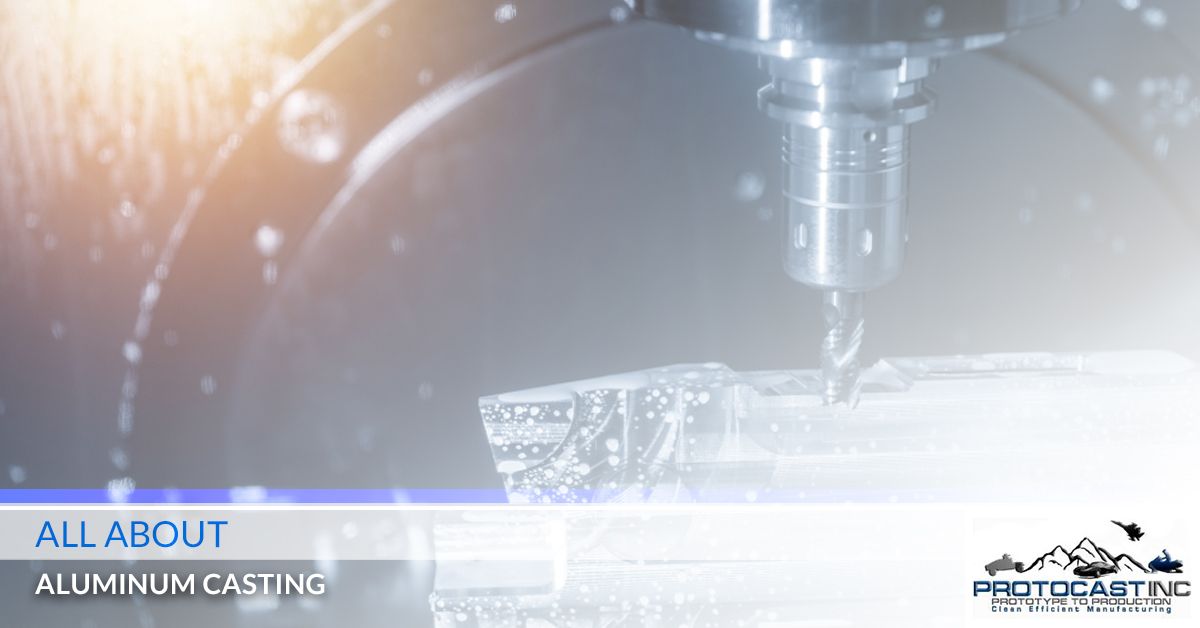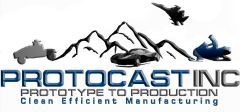Let’s dive right into today’s post, which, as the title no doubt already gave away, is all about aluminum casting. Briefly, though, allow us to explain when and why you would use Protocast Inc., beyond the obvious purposes of the aforementioned aluminum casting services.

All About Aluminum Casting
Prototype Casting Inc
When And Why Would You Use Our Denver Casting Services?
- When you and your company need to meet stringent project deadlines
- To test for form, fit, and function – eliminate design flaws and other costly problems before production by using Protocast Inc.
- When you need parts while ramping-up to full production in a timely manner
- To simulate your die-cast parts before paying for expensive hard tooling
- When you require high quality castings in quantities from 1 to 5,000 pieces per year
Denver Machining Services
- When you need castings post-machined to high tolerances
- When you need parts fully machined from stock
- 10 CNC Vertical Mills and 5th Axis machines
Why Use Aluminum?
First and foremost, if you take some time to observe the applications our industry is involved in, you’ll quickly realize how often cast aluminum is used in a multitude of different applications and objects. From cookware to boat parts to general construction, aluminum is used for its durability.
To take a step back, aluminum is an alloy with which we work and cast. It’s one of several alloys we work with, with other notable examples including stainless steel, zinc, and magnesium. Different alloys have different grades of metal, and as such certain alloys are appropriate for specific jobs. As we mentioned above, aluminum is quite durable, yet it’s also used for its cost-effective characteristics as well.
How We Cast Aluminum
We’ll spare you a step-by-step description of the process, but the long and short of it is that we take the raw material and put it through the casting process, effectively increasing its strength and durability. The alloy is now more easily usable for a variety of products as well, and the most typical casting processes for aluminum casts include die casting, mold casting, and sand casting, with die casting being the most popular method of the three.
Aluminum Alloy Characteristics
There are numerous reasons to use aluminum alloy for a particular project, but because each project is different, it’s usually necessary to speak to one of our experts about what you specifically have in mind. Below you’ll find a few of the most pragmatically beneficial characteristics of aluminum alloy:
- High operating temperatures
- Outstanding corrosion resistance
- Extremely lightweight
- Very good strength and hardness
- Good stiffness and strength-to-weight ratio
- Excellent EMI and RFI shielding properties
- Excellent thermal and electrical conductivity
- Ideal finishing characteristics
- Fully recyclable
Contact Us Today!
Today’s post might have been more succinct than you are perhaps used to, but we hope you found it educational and useful! Keep an eye out for our next post in which we highlight the characteristics and applications of magnesium casting.
All in all, if you are interested in learning about whether aluminum casting is the right choice for your company’s project, all you have to do is call us and we’d love to chat with you! Contact Protcast Inc. today.

